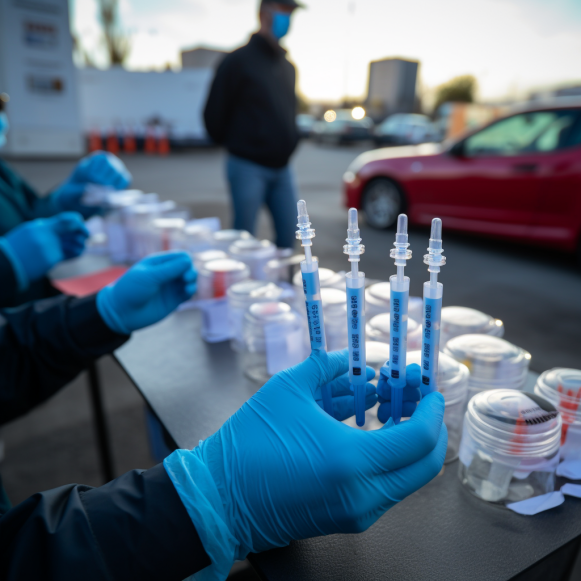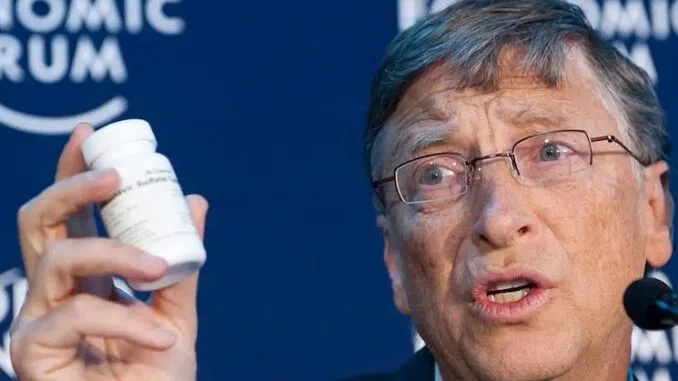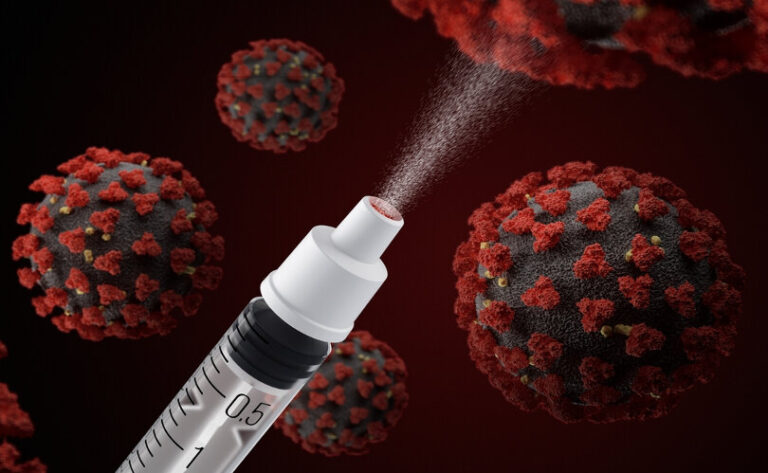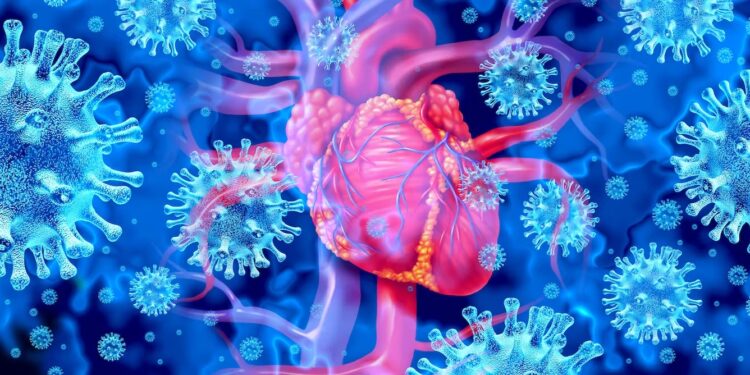Growing Number of Recurrent, Relapsing Cases of Myocarditis Reported After COVID-19 Vaccination

Doctors are reporting an increasing number of cases of recurrent and/or relapsing myocarditis following COVID-19 vaccination in medical journals.
One of the most recent papers, published in the August issue of Vaccine: X, describes two 16-year-old boys who developed myocarditis after receiving their second doses of Pfizer’s vaccine.
The patients recovered and were discharged from Rome’s Bambino Gesù Children’s Hospital.
However, they were both readmitted months later in what researchers called “relapsed cases.”
A cardiac MRI revealed abnormalities in one of the patients nine months after his initial diagnosis. Following COVID-19 vaccination, doctors prescribed intravenous immunoglobulins and angiotensin-converting enzyme inhibitors, both of which are common treatments for myocarditis.
After 13 days, he was released and advised to avoid strenuous exercise for six months.
The other patient was readmitted eight months after the initial episode and approximately six months after contracting COVID-19. Treatment was initiated, and the chest pain subsided. After six days in the hospital, he was discharged with the recommendation to continue treatment.
Both patients had persistent late gadolinium enhancement, which experts believe indicates heart scarring.
Dr. Donato Amodio and his colleagues hypothesized that viruses could act as a trigger for patients whose immune systems may have been compromised by the COVID-19 vaccine, which uses mRNA.
“Given the short follow-up period and the recent history of the disease, it is still unknown whether patients with a prior history of myocarditis after receiving the mRNA-based COVID-19 vaccine are at increased risk of recurrent myocarditis.” Furthermore, genetic testing would be necessary to confirm the presence of mutations in genes linked to cardiomyopathy. Such evaluations are still being conducted in our patients,” wrote Dr. Amodio and colleagues.
Remaining Unknowns
According to the researchers, the mechanism of post-vaccination myocarditis is unknown. “Remissions and relapses might be expected (like in other autoimmune diseases),” Dr. Eyal Shahar told The Epoch Times in an email.
When a person’s immune system attacks itself, this is referred to as autoimmunity.
Dr. Shahar, emeritus professor of epidemiology and biostatistics at the University of Arizona, who was not involved in the study, stated that autoimmunity “is a plausible mechanism” for the cases.
Dr. Amodio did not respond to an interview request.
Patients with post-vaccination myocarditis should be monitored regardless of relapse, according to Dr. Sanjay Verma, a cardiologist in California who was not involved in the study.
“The risk of sudden cardiac death associated with excessive or competition-level aerobic activity lasts six months…” Even if the heart function is normal, the risk lasts for six months. “If the heart function was decreased at the time of the initial diagnosis of myocarditis, then the risk of sudden cardiac death with aerobic activity can continue for years,” Dr. Verma told The Epoch Times. “If they have a relapsing episode, as the two cases in that article … they most definitely need long-term surveillance with a cardiologist.”
Follow-up visits to assess symptoms and possible repeat imaging to detect problems like late gadolinium enhancement, which has been linked to worse outcomes in classic myocarditis.
Dr. Andrew Bostom, a retired professor of medicine in Rhode Island, reviewed the paper and said the relapses happened so late that they could have been caused by something else. He expressed disappointment that the researchers did not look for circulating spike protein.
“That would have been really frightening if there was still evidence that they were producing spike protein, but I don’t think there was evidence for that,” Dr. Bostom said in an interview with The Epoch Times
Other Cases
In late 2022, South Korean researchers reported the case of a 17-year-old girl who developed myocarditis after receiving Pfizer vaccination and was discharged after clinical improvement. The next day, she passed out while sitting in a restaurant, prompting her readmission.
The girl was released about a month later, but was hospitalized again within nine days for colon inflammation. She was eventually released for the third time.
A 25-year-old man with post-vaccination heart inflammation was discharged but readmitted after experiencing recurrent symptoms, according to Canadian researchers in October 2022. Doctors called the situation a relapse. The man was eventually diagnosed with chronic myocarditis, among other things.
In May 2022, researchers in the United States described the case of a 74-year-old man who was admitted to the hospital with post-vaccination pericarditis, or inflammation of tissue outside the heart. He was discharged, admitted a week later, and then discharged with symptoms resolved.
In 2021, Israeli doctors described a man in his early 50s who was admitted to the hospital with chest pain about a week after receiving a COVID-19 vaccine. The man was discharged, but he was readmitted three times due to “flare ups of pericarditis during steroid tapering.”
Patient Avoided Vaccine
Additional papers have described patients who had previously experienced myocarditis or pericarditis as a result of a viral infection or vaccination, only to have it reoccur with a dose of the COVID-19 vaccine.
A 45-year-old man in the United States, for example, experienced chest pain following COVID-19 infection, again following a first dose of Moderna’s shot, and again following a second vaccine dose. Doctors reported that the condition had resolved.
Three years before receiving Moderna’s shot, a 23-year-old Japanese man developed viral myopericarditis. Post-vaccination myocarditis was diagnosed in him. He was eventually discharged with no residual symptoms.
After receiving a second dose of Pfizer’s vaccine, two young people in Australia developed myopericarditis. Their symptoms subsided, and they were each given a booster dose of Novavax’s COVID-19 vaccine. Following that, both experienced a recurrence of the heart inflammation.
Other researchers have examined groups of patients and discovered recurring cases.
In approximately one year, the Cardiology Department of the University Hospital of Udine saw 24 patients with pericarditis following COVID-19 vaccination who were not infected. Pericarditis recurred in five people.
11 of the 179 US military members who developed myocarditis following smallpox vaccination experienced cardiac symptoms such as chest pain. Four people met the definition of recurrent vaccine-associated myocarditis.
“More research is warranted on factors that may predispose patients to vaccine-associated cardiac injury and which vaccine platforms or schedules may reduce the risk of recurrence among patients who have experienced these events,” the study’s authors stated.
Dr. Verma advises patients to keep in mind that mixing doses from different manufacturers can increase the risk of myocarditis, and that symptoms aren’t always related to the heart. He has seen patients who have general symptoms such as nausea and fatigue.
Vaccine was not administered to the patient.
Most researchers who report such cases of post-vaccination myocarditis advise patients not to receive any additional doses of the COVID-19 vaccines. However, some doctors recommend taking additional shots.
In late 2021, Ben Cutler, a 29-year-old American, developed myocarditis following a Moderna booster. He learned more about the condition, including how other vaccines can cause it.
Mr. Cutler checked with his cardiologist to see if he should avoid any of the vaccines.
“‘Should I be cautious about other vaccines [over] myocarditis?'” ‘Next time, just get the Pfizer vaccine,’ she says, completely straight-faced.” The Epoch Times was informed by Mr. Cutler. “It was insane. ‘I’m not doing that,’ I said.
With very few exceptions, people who have had post-vaccination myocarditis should no longer receive additional shots, according to Dr. Bostom.
According to the Centers for Disease Control and Prevention (CDC), people with the condition should avoid additional shots in general, but more doses may be administered once symptoms have resolved. Even when the CDC could not rule out vaccination as a cause of their adverse event, the CDC has directly advised some patients to receive additional doses.





